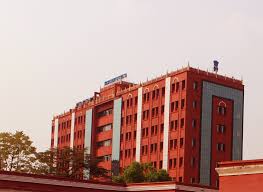-
by Admin
15 February 2026 5:35 AM



In a recent judgement that brings into sharp focus the complexities of dowry-related cases, the Orissa High Court has set aside the conviction under Section 304-B (Dowry Death) of the Indian Penal Code (IPC) against Bhanu Charan Pradhan, citing a lack of evidence linking the death of his wife to dowry demands. The Court, however, upheld the conviction under Section 498-A (Cruelty) of the IPC.
Justice S.K. Sahoo, presiding over the case, emphasized the necessity of meticulous evidence analysis, stating, “Men may tell lies, but circumstances do not.” This observation highlighted the Court’s approach to the circumstantial and documentary evidence presented.
The case, which dates back to 1997, involved the death of Minoti Pradhan, the wife of the appellant, under abnormal circumstances within seven years of marriage. The prosecution had alleged that her death was a result of cruelty and harassment related to dowry demands, a claim that was eventually not upheld due to insufficient evidence.
The Court’s analysis delved deeply into the contents of various letters and testimonies, underscoring the significance of understanding the nuances in such sensitive cases. Justice Sahoo remarked on the nature of the evidence, noting that it did not conclusively prove any dowry-related harassment.
In a significant observation, the judgment drew attention to the definition of dowry and the interpretation of demands made within a marriage. Citing previous Supreme Court judgments, Justice Sahoo clarified the distinctions between dowry demands and other financial negotiations within the marital context.
Mohammed Faradish, advocate for the appellant, and Mr. Priyabrata Tripathy, Additional Standing Counsel for the respondent, were acknowledged for their contributions to the case. The Court’s decision has sparked discussions among legal circles regarding the interpretation of dowry laws and the evidentiary standards required for convictions in such cases.
This judgement is seen as a crucial addition to the ongoing discourse on dowry-related crimes and the legal framework surrounding them in India.
Date of Decision: 02 November 2023
Bhanu Charan Pradhan VS State of Odisha
